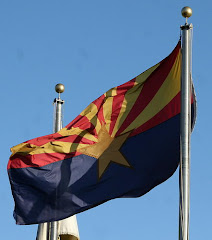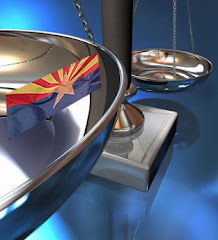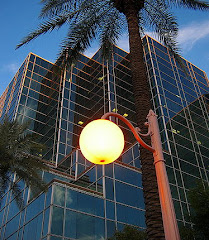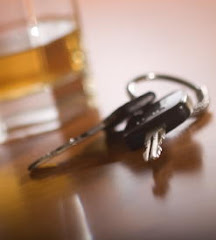Options If You Have Received a Traffic Ticket
You have received an Arizona traffic ticket. Now what? People often want to know what options are available to them after receiving a traffic ticket. First, we need to be clear about the difference in Arizona between a criminal traffic and a civil traffic ticket. (see The Difference Between a Criminal Traffic and Civil Traffic Case in this blog) The options listed below apply to a civil traffic ticket. If you are not sure what kind of ticket you have please contact a lawyer.
If you have received an Arizona Traffic Ticket and Compliant alleging a civil violation, this means that the State of Arizona is alleging that you committed a civil traffic violation. The ‘ticket’ may also be referred to as a complaint, or citation. The violation may also be referred to as a charge. In Arizona you may have several options of how you may proceed.
Option #1: Requesting a Hearing
If you disagree with the charge(s) and wish to dispute the charge(s) on the citation you should plead not responsible. A plea of not responsible means that you deny that you committed the violation(s) listed on the citation and are requesting a civil traffic hearing. At this hearing the officer who issued the ticket will have to prove that you committed the violation. A civil traffic hearing is a trial held before a Judge or Hearing Officer who decides both the facts and the law of the case. At this hearing the issuing officer must prove the violation(s) listed on the citation against you by a preponderance of evidence. This means that the officer must prove that it is more likely than not that you committed the violation. If your citation lists more than one charge, you will need to enter a plea for each charge. You are not required to enter the same plea for all charges. In other words you may plead responsible to one violation and challenge other violations.
You may choose to hire and be represented by a lawyer at your hearing. You cannot be represented by someone who is not a licensed attorney in the State of Arizona. If you decide to have a lawyer represent you, you must notify the Court in writing at least 10 days prior to your hearing.
Option #2: Pleading Responsible
If you plead responsible and pay the fine, this means you agree that you committed the violation(s) listed in the citation. Being found responsible of certain violations will cause the State of Arizona Motor Vehicle Division to assess points to your Motor Vehicle Record (MVR) often also called your driving record. The Motor Vehicle Division (MVD) may suspend or revoke your privilege to drive depending on the number of points you accumulate. Your insurance company may also increase your insurance rates based upon findings of responsible.
Option #3: Traffic School
You may be eligible to attend Defensive Driving School (DDS) if you have not previously attended Defensive Driving School (DDS) within two years of the date of your current citation. Defensive Driving School (DDS) is different from Traffic Survival School (TSS) (see Defensive Driving School (DDS) vs. Traffic Survival School (TSS) in this blog).
Defensive Driving School (DDS) is an educational course that you must successfully complete and pass usually prior to your scheduled court date. Make sure to attend a course approved by your particular court. If you encounter difficulty in scheduling a course, contact the court as you may be able to request an extension. Why should you consider Defensive Driving School (DDS)? Once you provide the court with proof of completion of the course, the court will dismiss the citation resulting in no points being accessed to your driving record and no changes to your insurance rates. It is important to note that in Arizona, you will not be allowed to attend Defensive Driving School (DDS) to dismiss your citation if you have a commercial driver’s license (CDL).
THE LAW OFFICE OF KARL A. MUELLER, PLC
Website: www.AzTrialLawyer.com
Call (602) 697-8761
Free 24 Hour Consultations
July 18, 2009
July 14, 2009
Driver's License Suspension vs. Revocation
Driver's License Suspension vs. Revocation in Arizona
In Arizona is there a difference between your driver’s license being suspended vs. revoked? What is the difference between a driver’s license suspension and a revocation?
In Arizona, it is important to understand that driving is a privilege governed by the State through the Arizona Department of Transportation (ADOT) Motor Vehicles Division (MVD). Driving is not a right. Arizona courts hear both civil and criminal matters involving crimes and violations that may affect your driving record. Your driving record in turn may then affect the status of your license leading to suspension or revocation.
Suspension
In Arizona, a driver’s license suspension is the temporary removal of your license or privilege to drive. This is an action taken by Arizona Department of Transportation (ADOT) Motor Vehicles Division (MVD) after a review of your driving record also referred to as your Motor Vehicle Record (MVR). If your license is suspended, then it must be reinstated before you can legally drive. A driver’s license suspension will remain in effect until the prescribed time period of the suspension is served and you make an application for reinstatement and pay the applicable reinstatement fee.
Revocation
Re-establishing your ability to drive after a revocation is more difficult than a suspension. In Arizona, a driver’s license revocation is the complete removal of your license or privilege to drive. Your license will remain revoked until you apply for a new license. As part of the application for a new license, you must submit and pass an investigation into your driving record. All outstanding obligations must be satisfied in order to qualify for re-instatement of your privilege to drive.
Suspension vs. Revocation
A license suspension is for a definite period of time. With a suspension, once the suspension period has elapsed, your license is eligible for re-instatement. During your suspension period you may be eligible for restricted privileges. A license revocation on the other hand is the complete removal of your license. After a revocation, you must apply for a new license and during the revocation you are not eligible for restricted privileges.
THE LAW OFFICE OF KARL A. MUELLER, PLC
Website: www.AzTrialLawyer.com
Call (602) 697-8761
Free 24 Hour Consultations
In Arizona is there a difference between your driver’s license being suspended vs. revoked? What is the difference between a driver’s license suspension and a revocation?
In Arizona, it is important to understand that driving is a privilege governed by the State through the Arizona Department of Transportation (ADOT) Motor Vehicles Division (MVD). Driving is not a right. Arizona courts hear both civil and criminal matters involving crimes and violations that may affect your driving record. Your driving record in turn may then affect the status of your license leading to suspension or revocation.
Suspension
In Arizona, a driver’s license suspension is the temporary removal of your license or privilege to drive. This is an action taken by Arizona Department of Transportation (ADOT) Motor Vehicles Division (MVD) after a review of your driving record also referred to as your Motor Vehicle Record (MVR). If your license is suspended, then it must be reinstated before you can legally drive. A driver’s license suspension will remain in effect until the prescribed time period of the suspension is served and you make an application for reinstatement and pay the applicable reinstatement fee.
Revocation
Re-establishing your ability to drive after a revocation is more difficult than a suspension. In Arizona, a driver’s license revocation is the complete removal of your license or privilege to drive. Your license will remain revoked until you apply for a new license. As part of the application for a new license, you must submit and pass an investigation into your driving record. All outstanding obligations must be satisfied in order to qualify for re-instatement of your privilege to drive.
Suspension vs. Revocation
A license suspension is for a definite period of time. With a suspension, once the suspension period has elapsed, your license is eligible for re-instatement. During your suspension period you may be eligible for restricted privileges. A license revocation on the other hand is the complete removal of your license. After a revocation, you must apply for a new license and during the revocation you are not eligible for restricted privileges.
THE LAW OFFICE OF KARL A. MUELLER, PLC
Website: www.AzTrialLawyer.com
Call (602) 697-8761
Free 24 Hour Consultations
July 11, 2009
Driving on a Suspended License in Arizona
Driving on a Suspended License in Arizona
In Arizona, Driving on a Suspended License is a crime. The crime of Driving on a Suspended License is a class 1 misdemeanor. (see Misdemeanors in Arizona in this blog) Driving While Suspended requires proof beyond a reasonable doubt. The elements of the crime of Driving on a Suspended License are met anytime the State can prove you knowingly operated a motor vehicle while your license was suspended, revoked, or cancelled.
A driver’s license suspension is the temporary removal of your privilege to drive. It is an action taken by Motor Vehicles Division (MVD) after a review of your Motor Vehicle Record (MVR), also commonly called you driving record.
Re-Instatement
If your driver’s license is suspended, the suspension will remain in effect until you make an application for reinstatement and pay the applicable fine. Many times the suspension notice for Motor Vehicles Division (MVD) will indicate that you will be suspended for a determined period of time. What tends to escape many people is that until you pay a "reinstatement fee", your license will be suspended indefinitely. Often people believe that they have served their suspension period and begin to drive again mistakenly believing that the suspension has been lifted.
Depending on the reason the prosecution is claiming your license was suspended, you may be charged with three different types of Driving on a Suspended License. The State must prove that Motor Vehicles Division (MVD) made notification that your license had been suspended. However, Arizona law only requires the State to show that you "should have known" that your license was suspended. In other words, a claim that you moved and no longer live at the address that Motor Vehicle has on record, may fail since Arizona law requires you to notify Motor Vehicle Division of a change of address within ten (10) days.
Consequences of Driving on a Suspended License
Be careful, depending on the facts of your case and your driving history, being found guilty of Driving on a Suspended License can have many potential consequences including:
Being arrested on the spot
Impounding of your vehicle
Mandatory jail time
Mandatory Fines
Conviction of a crime resulting in a criminal record
Extension and re-suspension or revocation of your license
Points being accessed to your driving record
Higher insurance, cancellation of insurance, or denial of insurance
Effects on immigration status, visas, and passports
Probation
Community service
THE LAW OFFICE OF KARL A. MUELLER, PLC
Website: www.AzTrialLawyer.com
Call (602) 697-8761
Free 24 Hour Consultations
In Arizona, Driving on a Suspended License is a crime. The crime of Driving on a Suspended License is a class 1 misdemeanor. (see Misdemeanors in Arizona in this blog) Driving While Suspended requires proof beyond a reasonable doubt. The elements of the crime of Driving on a Suspended License are met anytime the State can prove you knowingly operated a motor vehicle while your license was suspended, revoked, or cancelled.
A driver’s license suspension is the temporary removal of your privilege to drive. It is an action taken by Motor Vehicles Division (MVD) after a review of your Motor Vehicle Record (MVR), also commonly called you driving record.
Re-Instatement
If your driver’s license is suspended, the suspension will remain in effect until you make an application for reinstatement and pay the applicable fine. Many times the suspension notice for Motor Vehicles Division (MVD) will indicate that you will be suspended for a determined period of time. What tends to escape many people is that until you pay a "reinstatement fee", your license will be suspended indefinitely. Often people believe that they have served their suspension period and begin to drive again mistakenly believing that the suspension has been lifted.
Depending on the reason the prosecution is claiming your license was suspended, you may be charged with three different types of Driving on a Suspended License. The State must prove that Motor Vehicles Division (MVD) made notification that your license had been suspended. However, Arizona law only requires the State to show that you "should have known" that your license was suspended. In other words, a claim that you moved and no longer live at the address that Motor Vehicle has on record, may fail since Arizona law requires you to notify Motor Vehicle Division of a change of address within ten (10) days.
Consequences of Driving on a Suspended License
Be careful, depending on the facts of your case and your driving history, being found guilty of Driving on a Suspended License can have many potential consequences including:
Being arrested on the spot
Impounding of your vehicle
Mandatory jail time
Mandatory Fines
Conviction of a crime resulting in a criminal record
Extension and re-suspension or revocation of your license
Points being accessed to your driving record
Higher insurance, cancellation of insurance, or denial of insurance
Effects on immigration status, visas, and passports
Probation
Community service
THE LAW OFFICE OF KARL A. MUELLER, PLC
Website: www.AzTrialLawyer.com
Call (602) 697-8761
Free 24 Hour Consultations
July 6, 2009
Consequences of Not Appearing for a Traffic Ticket
Consequences of Not Appearing for a Traffic Ticket
What happens if I don’t show up to court for my traffic ticket? What happens if I don’t pay the fine?
Failure Appear for Your Court Date
First of all, it is very important to understand that the there is a big difference in what happens should you not show up for a criminal traffic ticket versus a civil traffic ticket. Criminal traffic and civil traffic cases are treated differently by the court. (see The Difference Between a Criminal Traffic and a Civil Traffic Case in this blog)
The consequences of failing to appear on a criminal traffic and civil traffic case assume that the court has proof of proper notice on your case.
Criminal Traffic Case
If you fail to appear on your assigned court date in a criminal traffic case the judge will issue a warrant for your arrest.
Civil Traffic Case
If your fail to appear on your assigned court date in a civil traffic case and the issuing officer does, the court will enter a default against you. What is a default? A default means you didn’t show up, so you lose. The Court will then access the fine and notify Motor Vehicles Division (MVD) to suspend your driver’s license until you have paid the fine.
Consequences of Not Paying the Fine
If your do appear and are found responsible for the civil traffic violation, but do not pay the Court ordered fine, the Court will again notify the Motor Vehicles Department (MVD) that you are in default. Motor Vehicle Division will then suspend your driving privileges until you have paid the fine.
If your driver's license or privilege to drive is suspended as the result of a default judgment, you will be required to pay the fine, a default fee, and additional fees to the Motor Vehicles Department (MVD) in order to have your driving privileges reinstated. If you drive while your license or privilege to drive is suspended, you will be subject to criminal penalties and additional sanctions. (see Driving on a Suspended License in Arizona in this blog)
In addition, for all civil violations for which a default judgment has been imposed, the Court may notify a credit bureau of any outstanding and delinquent balances, notify the Arizona Department of Revenue to attach your tax refunds, and take any other legally appropriate collection action against you, your income, or your property. If the Court refers your account to a collection agency or the Arizona Department of Revenue, additional collection fees will be added to your account balance.
THE LAW OFFICE OF KARL A. MUELLER, PLC
Website: www.AzTrialLawyer.com
Call (602) 697-8761
Free 24 Hour Consultations
What happens if I don’t show up to court for my traffic ticket? What happens if I don’t pay the fine?
Failure Appear for Your Court Date
First of all, it is very important to understand that the there is a big difference in what happens should you not show up for a criminal traffic ticket versus a civil traffic ticket. Criminal traffic and civil traffic cases are treated differently by the court. (see The Difference Between a Criminal Traffic and a Civil Traffic Case in this blog)
The consequences of failing to appear on a criminal traffic and civil traffic case assume that the court has proof of proper notice on your case.
Criminal Traffic Case
If you fail to appear on your assigned court date in a criminal traffic case the judge will issue a warrant for your arrest.
Civil Traffic Case
If your fail to appear on your assigned court date in a civil traffic case and the issuing officer does, the court will enter a default against you. What is a default? A default means you didn’t show up, so you lose. The Court will then access the fine and notify Motor Vehicles Division (MVD) to suspend your driver’s license until you have paid the fine.
Consequences of Not Paying the Fine
If your do appear and are found responsible for the civil traffic violation, but do not pay the Court ordered fine, the Court will again notify the Motor Vehicles Department (MVD) that you are in default. Motor Vehicle Division will then suspend your driving privileges until you have paid the fine.
If your driver's license or privilege to drive is suspended as the result of a default judgment, you will be required to pay the fine, a default fee, and additional fees to the Motor Vehicles Department (MVD) in order to have your driving privileges reinstated. If you drive while your license or privilege to drive is suspended, you will be subject to criminal penalties and additional sanctions. (see Driving on a Suspended License in Arizona in this blog)
In addition, for all civil violations for which a default judgment has been imposed, the Court may notify a credit bureau of any outstanding and delinquent balances, notify the Arizona Department of Revenue to attach your tax refunds, and take any other legally appropriate collection action against you, your income, or your property. If the Court refers your account to a collection agency or the Arizona Department of Revenue, additional collection fees will be added to your account balance.
THE LAW OFFICE OF KARL A. MUELLER, PLC
Website: www.AzTrialLawyer.com
Call (602) 697-8761
Free 24 Hour Consultations
June 29, 2009
The Crime of Unlawful Flight in Arizona
The Crime of Unlawful Flight
What is the crime of Unlawful Flight in Arizona? In Arizona, Unlawful Flight is also known as and sometimes called ‘Felony Flight’. However, it is officially titled Unlawful Flight in the Arizona statutes and is a class 5 felony. (see Consequences of a Felony Conviction in this blog)
The crime of Unlawful Flight can be charged where the State can prove that the driver of a vehicle willfully fled from or attempted to elude a pursuing law enforcement vehicle. That law enforcement vehicle must meet the legal requirements of being appropriately marked and identifiable as an official law enforcement vehicle under Arizona law. Additionally the driver of the law enforcement vehicle must also take action to meet some additional requirements under Arizona law. This usually amounts to the driver turning on the red or blue lights and using an audible siren.
Many involved in law enforcement would define Unlawful Flight as being chased by a police car that has its lights and siren activated. As an Arizona State Prosecutor, I tried this crime many times and discovered that the statute in Arizona is not that simple. The fact that the State has elected to charge you with Unlawful Flight does not necessarily mean they can meet the all the requirements to prove it.
There are some elements that can be challenging for the State such as proving that the person charged was ‘willfully’ fleeing or attempting to elude. Arizona law enforcement now uses many different types of vehicles and the requirements of being appropriately marked, and the use of lights and siren are not always a given.
THE LAW OFFICE OF KARL A. MUELLER, PLC
Website: www.AzTrialLawyer.com
Call (602) 697-8761
Free 24 Hour Consultations
What is the crime of Unlawful Flight in Arizona? In Arizona, Unlawful Flight is also known as and sometimes called ‘Felony Flight’. However, it is officially titled Unlawful Flight in the Arizona statutes and is a class 5 felony. (see Consequences of a Felony Conviction in this blog)
The crime of Unlawful Flight can be charged where the State can prove that the driver of a vehicle willfully fled from or attempted to elude a pursuing law enforcement vehicle. That law enforcement vehicle must meet the legal requirements of being appropriately marked and identifiable as an official law enforcement vehicle under Arizona law. Additionally the driver of the law enforcement vehicle must also take action to meet some additional requirements under Arizona law. This usually amounts to the driver turning on the red or blue lights and using an audible siren.
Many involved in law enforcement would define Unlawful Flight as being chased by a police car that has its lights and siren activated. As an Arizona State Prosecutor, I tried this crime many times and discovered that the statute in Arizona is not that simple. The fact that the State has elected to charge you with Unlawful Flight does not necessarily mean they can meet the all the requirements to prove it.
There are some elements that can be challenging for the State such as proving that the person charged was ‘willfully’ fleeing or attempting to elude. Arizona law enforcement now uses many different types of vehicles and the requirements of being appropriately marked, and the use of lights and siren are not always a given.
THE LAW OFFICE OF KARL A. MUELLER, PLC
Website: www.AzTrialLawyer.com
Call (602) 697-8761
Free 24 Hour Consultations
June 26, 2009
A Class 6 Undesignated Felony Offense
A Class 6 Undesignated Felony Offense, also known as a ‘6-Open’ in Arizona
What is a class 6 undesignated felony offense? A class 6 undesignated felony offense, is also frequently referred to as a 6-open felony. In Arizona, at the time of sentencing for a class 6 felony offense a judge may leave the offense undesignated. This means that the offense has not yet been designated a felony conviction. In other words the felony designation is suspended or remains undetermined and may eventually be designated a misdemeanor as opposed to a felony. This is usually done to create an incentive to successfully complete a probationary term.
In lay terms it works like this: The State or court agrees to leave the offense undesignated. If you do everything you are supposed to do and successfully complete probation, the offense may be designated a misdemeanor thereby avoiding the serious consequences having of a felony conviction on your record. (see Consequences of a Felony Conviction in this blog) This creates a strong incentive to successfully complete probation and ‘earn’ a misdemeanor. The interests of the State are served because if the individual does not take advantage of this opportunity to prove themselves on probation, does not successfully complete probation, does poorly on probation, or commits another offense, the court may then designate the offense a felony.
A class 6 felony is the least serious category of felony in Arizona. Many times more serious or higher category felony offenses are reduced to class 6 felonies in order to ‘open them’ or leave them undesignated at the time of sentencing. For instance you may be charged with a class 4 felony offense, but offered a plea agreement to a class 6 undesignated felony.
In Arizona, the ability of the court to leave an offense undesignated is a valuable tool available to the court to create great incentive for probationers to do well on probation. It is also a last chance and valuable opportunity for those facing felony convictions to have the ability to prove to the court that they deserve to carry on with their lives without the burden being a felon.
THE LAW OFFICE OF KARL A. MUELLER, PLC
Website: www.AzTrialLawyer.com
Call (602) 697-8761
Free 24 Hour Consultations
What is a class 6 undesignated felony offense? A class 6 undesignated felony offense, is also frequently referred to as a 6-open felony. In Arizona, at the time of sentencing for a class 6 felony offense a judge may leave the offense undesignated. This means that the offense has not yet been designated a felony conviction. In other words the felony designation is suspended or remains undetermined and may eventually be designated a misdemeanor as opposed to a felony. This is usually done to create an incentive to successfully complete a probationary term.
In lay terms it works like this: The State or court agrees to leave the offense undesignated. If you do everything you are supposed to do and successfully complete probation, the offense may be designated a misdemeanor thereby avoiding the serious consequences having of a felony conviction on your record. (see Consequences of a Felony Conviction in this blog) This creates a strong incentive to successfully complete probation and ‘earn’ a misdemeanor. The interests of the State are served because if the individual does not take advantage of this opportunity to prove themselves on probation, does not successfully complete probation, does poorly on probation, or commits another offense, the court may then designate the offense a felony.
A class 6 felony is the least serious category of felony in Arizona. Many times more serious or higher category felony offenses are reduced to class 6 felonies in order to ‘open them’ or leave them undesignated at the time of sentencing. For instance you may be charged with a class 4 felony offense, but offered a plea agreement to a class 6 undesignated felony.
In Arizona, the ability of the court to leave an offense undesignated is a valuable tool available to the court to create great incentive for probationers to do well on probation. It is also a last chance and valuable opportunity for those facing felony convictions to have the ability to prove to the court that they deserve to carry on with their lives without the burden being a felon.
THE LAW OFFICE OF KARL A. MUELLER, PLC
Website: www.AzTrialLawyer.com
Call (602) 697-8761
Free 24 Hour Consultations
June 23, 2009
Misdemeanors in Arizona
Misdemeanors in Arizona
What is a misdemeanor? First of all it is important to understand that it is a crime subjecting you to criminal prosecution and a criminal record. Historically misdemeanors have been defined as a criminal offense which is punishable by a sentence of incarceration for not more than a year. In Arizona, you cannot receive more than six (6) months for a misdemeanor conviction.
Consequences of a Misdemeanor in Arizona
What are the consequences of a misdemeanor in Arizona? That may depend on the level of misdemeanor. In Arizona there are three types or categories of misdemeanors. Misdemeanors are divided into classes. A class 1 misdemeanor is the most serious, while a class 3 misdemeanor is the least serious. Each class of misdemeanor has a maximum penalty. In other words the court cannot impose a sentence greater than the following:
For a class 1 up to six (6) months in jail and a $2,500.00 fine
For a class 2 up to four (4) months in jail and a $750.00 fine
For a class 3 up to thirty (30) days in jail and a $500 fine
It is important to understand but arguably difficult to understand that although Arizona law sets a limit on the maximum fine that can be imposed, the legislature has been free to add mandatory surcharges, assessments, jail costs, and other fees which in some cases can double or triple the original fine amount.
In addition to jail and fines, under Arizona law a conviction for a misdemeanor may also involve, and in some cases require some additional penalties including:
Criminal record
Probation
Community service
Loss of the right to possess a firearm
Classes
Drug or alcohol testing and treatment
Mandatory suspension or revocation of your driver’s license
Diversion
THE LAW OFFICE OF KARL A. MUELLER, PLC
Website: www.AzTrialLawyer.com
Call (602) 697-8761
Free 24 Hour Consultations
What is a misdemeanor? First of all it is important to understand that it is a crime subjecting you to criminal prosecution and a criminal record. Historically misdemeanors have been defined as a criminal offense which is punishable by a sentence of incarceration for not more than a year. In Arizona, you cannot receive more than six (6) months for a misdemeanor conviction.
Consequences of a Misdemeanor in Arizona
What are the consequences of a misdemeanor in Arizona? That may depend on the level of misdemeanor. In Arizona there are three types or categories of misdemeanors. Misdemeanors are divided into classes. A class 1 misdemeanor is the most serious, while a class 3 misdemeanor is the least serious. Each class of misdemeanor has a maximum penalty. In other words the court cannot impose a sentence greater than the following:
For a class 1 up to six (6) months in jail and a $2,500.00 fine
For a class 2 up to four (4) months in jail and a $750.00 fine
For a class 3 up to thirty (30) days in jail and a $500 fine
It is important to understand but arguably difficult to understand that although Arizona law sets a limit on the maximum fine that can be imposed, the legislature has been free to add mandatory surcharges, assessments, jail costs, and other fees which in some cases can double or triple the original fine amount.
In addition to jail and fines, under Arizona law a conviction for a misdemeanor may also involve, and in some cases require some additional penalties including:
Criminal record
Probation
Community service
Loss of the right to possess a firearm
Classes
Drug or alcohol testing and treatment
Mandatory suspension or revocation of your driver’s license
Diversion
THE LAW OFFICE OF KARL A. MUELLER, PLC
Website: www.AzTrialLawyer.com
Call (602) 697-8761
Free 24 Hour Consultations
Subscribe to:
Posts (Atom)

.jpg)

.jpg)
.jpg)
.jpg)




.jpg)
.jpg)
.jpg)
.jpg)